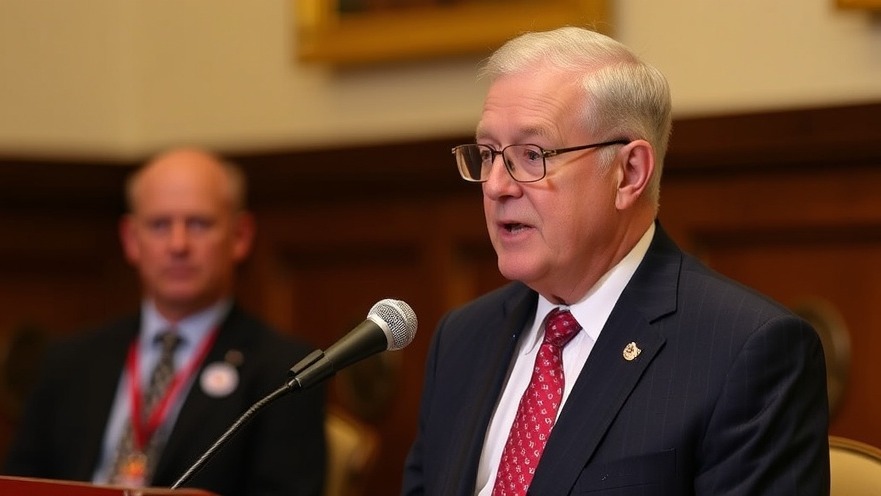
The End of an Era: Robert Nichols Announces Retirement
In a significant shift in Texas politics, Senator Robert Nichols, a Republican and the longest-serving member of the Texas Senate, has announced he will not seek reelection for his East Texas seat. This announcement came as Rep. Trent Ashby swiftly declared his candidacy to fill the vacancy, marking what could be a turning point in the region's political landscape.
“It has been one of the greatest honors of my life to have represented the people of East Texas in the Texas Senate,” said Nichols in a prepared statement. He intends to complete his term, which ends on January 12, 2027, before stepping away from public office.
A Political Career with Impact
Serving since 2006, Nichols has been a prominent figure in Texas politics, often taking stands contrary to his party’s hardline positions. Notably, he was the only Republican senator to vote against private school vouchers in 2023 and demonstrated a willingness to collaborate across party lines on issues critical to his constituents. His vote to convict Attorney General Ken Paxton indicates a bipartisan commitment to ethical governance, a rare trait among lawmakers today.
Furthermore, Nichols has advocated for local authority, voting against legislation that limits cities and counties from utilizing public funds for lobbying. This stance has drawn mixed reactions within the GOP, reflecting the division within party ranks over issues like government spending and education funding.
Trent Ashby: A New Direction for East Texas?
Following Nichols' announcement, Rep. Trent Ashby promptly positioned himself as a candidate ready to secure the legacy of conservative values in the Texas Senate. With experience from his time in the House, Ashby has emphasized his dedication to rural communities, property rights, and education reforms. His campaign promises to continue tackling local concerns, including enhancements to public school funding and critical infrastructure projects.
“We need a strong, experienced voice in the Senate,” Ashby stated, highlighting the changing political atmosphere on crucial issues affecting Texas families. His focus on local governance and community empowerment suggests he may continue Nichols' legacy of prioritizing constituent needs over partisan politics.
Statewide Implications of a Senior Republican Retiring
Nichols' retirement not only reshapes the future of East Texas representation but could also indicate broader trends within the Republican Party. As tensions rise regarding policy direction—especially on issues like education and healthcare—how Ashby and other potential candidates position themselves in the wake of Nichols’ tenure will be critical in defining the party's future. Nichols has illustrated that there are numerous paths to approach governance in Texas, pushing against the polarized climate that typically characterizes state politics.
Looking Ahead: What’s Next for Texas?
The Texas Senate faces vital decisions in the coming years, especially regarding funding and policy that directly affect residents across the state. As new candidates emerge and current lawmakers navigate an evolving political landscape, Texans will be closely watching how these shifts will impact their daily lives, from education to infrastructure projects.
With an open seat in the Senate, upcoming elections hold the potential for significant change within Texas politics. Will Ashby, as a newly elected senator, uphold the bipartisan principles set by Nichols, or will he lean towards the more traditional Republican rhetoric? Only time will tell.
Take Action: Stay Informed About Texas Politics
As Texas continues to evolve politically, it is crucial to stay informed through reliable channels about upcoming elections and legislative changes. Engaging with local news sources such as The Texas Tribune can offer insights into how these developments will affect your community. Be proactive in understanding who your next senator is, as this individual's decisions will impact not only East Texas but the statewide narrative on key issues.
 Add Element
Add Element  Add Row
Add Row 



Write A Comment